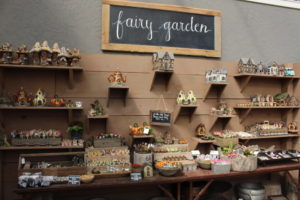
Trust Makes the World Go Round …
It’s recent enough that I can still see (and hear) very clearly in my rearview mirror the campaigns for the midterm elections that took place on the federal, state, and local levels during one of the most polarized and disrespected political environments on record. We’re in an era of diabolically opposed positions, a black or white, an “I’m right, and you’re wrong” absolute positioning, with no possibility of any gray in the middle.
No matter their political persuasion, Republican, Democrat or Independent, the speeches, debates, and advertising were rift with lies, half-truths bordering on slander, planting seeds of mistrust, and publicizing every fault and flaw ever possessed by their opponents — often taken completely out of context. It seemed the mission was to erode and destroy any trust that was held by their opponent to become the preferred choice by default. I don’t know anyone who was sorry for the campaigning and speeches to be over.
In too many instances, the voters ended up voting for the lesser of two evils — the one who did a better job of defiling his/her opponent — rather than making a decision on which candidate could do the greatest good based on their accomplishments and integrity. In many cases, the decision came down to weighing which candidate I mistrusted less, not who I trusted more.
I’m old enough to remember when politicians each ran on their own values and accomplishments, hoping to convey a sense of confidence in their abilities and positions, and did not try to disgrace their opponents or tear them down. Voters made decisions based on who they trusted more, not mistrusted less. And once elected, the winners had a healthy respect for the office they held and acted for the good of the country (or state or locality), with a willingness to compromise for the sake of the greater good.
Building Trust
Trust is the primary building block of establishing a relationship. The best definition of “trust” that I’ve seen is that it is “the firm belief in the reliability, truth, ability, or strength of someone or something.” It sounds so simple until we truly comprehend the reality and import that if this trust is broken or can’t be established, then the potential power of relationships can’t be realized.
And trust is made up of so many factors on so many levels — intellectual, emotional, confidences and experiences, competency, integrity, empathy, compassion, honesty, reliability, and vulnerability, among others. The more of these elements you can include in your trust relationship, the stronger that relationship will be; but as you weaken or take away elements, the trust relationship begins to erode.
And trust relationships exhibit themselves in so many aspects of your life — with your family and friends, with your teams, with your suppliers, and, most importantly in your business, with your customers.
For your business, trust relationships are important for three different, yet common, customer segments:
- Those customers who aren’t doing business with you — how can you communicate realistic expectations to potential customers that you can meet or exceed?
- Your current customers — are you leveraging every opportunity to strengthen your relationships and build a strong foundation of trust?
- VIP customers — strong relationships lead to strong bonds of mutual trust, leading to loyalty. Are you looking at the lifetime value benefits of your most loyal customers?
Once established, it’s your job to ensure that these strong levels of trust are never weakened or eroded. In the heat of the season, we sometimes forget that retail is a business of relationships, whether it is between individuals, or between a company and an individual; it can be between you and your team, one of your sales team and a customer, or your customer with your brand. And trust is the single most important driver, the fundamental building block, of successful relationships in teams and organizations, or between individuals.
Earning Trust
Ever wonder why some brands are stronger than others? Consider the classic definition of a brand — it’s a promise or expectation built and reinforced over time based on repeated experiences. It’s a relationship between an individual and a product or store that’s based on trust! And the stronger that bond of trust becomes, the more brand loyal the individual becomes.
We often hear that word-of-mouth (WOM) advertising is the most powerful form of promotion, but did you ever think about why it works? People tend to better believe the people they trust or have relationships with than what they might simply read or hear about; if your trusted friend tells you that Pohmer’s Garden Center is the best in town, you will believe him until you are proven otherwise based on your personal experience with Pohmer’s Garden Center.
Here’s a real-world example of the way WOM works: My son needed some chimney repair/concrete work done and he had three companies come out to give him estimates. He knew I had some similar work done two years ago and asked me which company I used. Based on my bond of trust with my son, the strength of our relationship and the positive experience I had with one of these companies, he took my recommendation for the company I had used. It’s important to point out that the company I recommended had quoted the highest price, but because he felt a higher level of trust based on my experience, trust compensated for the price differential. That’s an example of the power of WOM.
Trust is not given; it is earned. And earning trust is a process that takes time and consistency. Once trust is earned, you can build on it and strengthen it to develop loyal relationships. If the bond of trust is ever broken or hasn’t yet been established, it is well worth the effort and expense to fight to earn it back. Without trust, there is no relationship. Without relationships, there is no loyalty. Without loyalty, you can never achieve your full potential. Having trust and strong relationships with your customers can be your best competitive advantage and differentiator. Trust is difficult to build and remarkably easy to lose.
For an enhanced reading experience, view this article in our digital edition.


















 Videos
Videos





